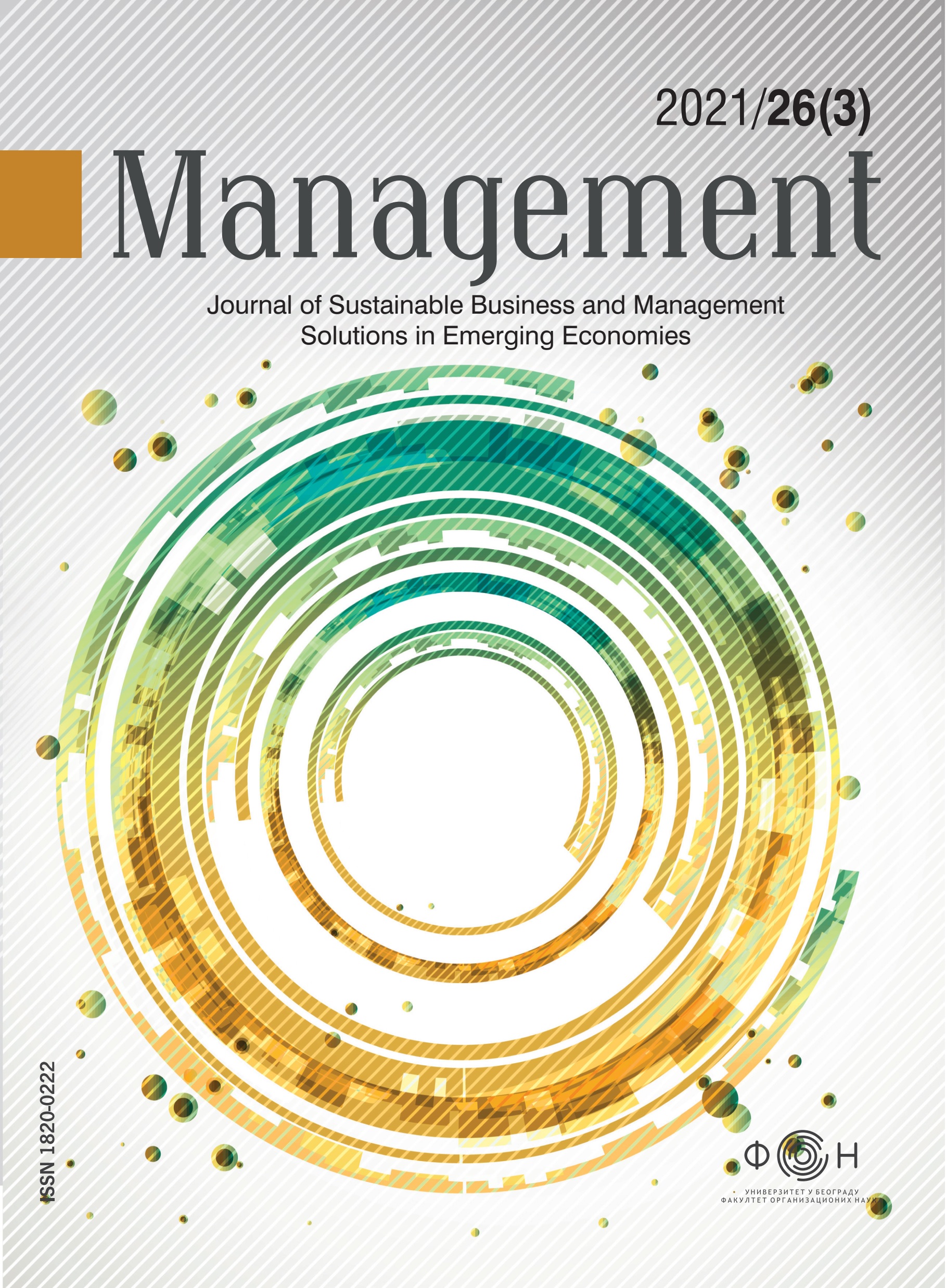Some Aspects of Corporate Social Responsibility and Company Reputation: Evidence from Serbian Business Environment
Some Aspects of Corporate Social Responsibility and Company Reputation:Evidence from Serbian Business Environment
Author(s): Biljana Chroneos Krasavac, Ema Karamata, Jasna Soldić-Aleksić, Katica RADOSAVLJEVIĆSubject(s): Business Economy / Management, Marketing / Advertising
Published by: Fakultet organizacionih nauka Univerziteta u Beogradu (FON)
Keywords: corporate social responsibility;corporate reputation;customer shopping behaviour;consumers’ decisions;ethical responsibility;COVID-19 pandemic;
Summary/Abstract: Research question: This paper examines some aspects of corporate social responsibility (CSR) and company reputation (CR) in the Serbian business environment during the COVID-19 pandemic. Motivation: The survival, growth and development of companies in the current business environment are conditioned by their capability to reach socially responsible decisions and carry out activities that meet the expectations of different stakeholders. The main motive for this research has stemmed from the current global corona virus pandemic and the way this state of affairs has affected socially responsible behaviour of companies. The research of activities Serbian companies carried out in the time of crisis prompted us to explore the possible relationship between corporate social responsibility and its effects on corporate reputation, and consequently business results. Research idea: An empirical research has been conducted with the view to investigate the position of the public on the importance and impact of CSR on corporate reputation, and also to determine the key factors that guide the decisions of people living in the Republic of Serbia to shop, bearing in mind the socially responsible behaviour of companies. Data: The sample included 173 respondents, the number that allowed valid conclusions. The questionnaire was anonymous; all the respondents were residents of Serbia with access to the internet and willing to fill in the questionnaire, either by following the link advertised on social media or replying to the e-mail. Tools: The gathered data were processed and analysed using descriptive and explorative statistics. Research hypotheses were tested by: Frequency tables, Crosstable procedures, Paired Samples t-test, Spearman`s coefficient of correlation, Chi-square test, and Phi coefficient of correlation, resulting in conclusions and corresponding suggestions. Findings: Respondents perceive companies as social actors driven not only by profit, but by the interest of the community and their business environment. They believe companies can assume their responsibilities through different aspects of doing business, especially by contributing to the improvement of their consumer’s lifestyle. The majority of respondents tend to buy from companies they perceive as socially responsible from the point of view of further development of the society and their ethical behaviour towards the community. Contribution: The findings can encourage the company’s management to direct their financial and organizational resources into the better management of the CSR, especially during the crisis, because solidarity and care for the most vulnerable part of the population lead to an improvement in the reputation and business results of a company.
Journal: Management: Journal of Sustainable Business and Management Solutions in Emerging Economies
- Issue Year: 26/2021
- Issue No: 3
- Page Range: 47-60
- Page Count: 13
- Language: English

